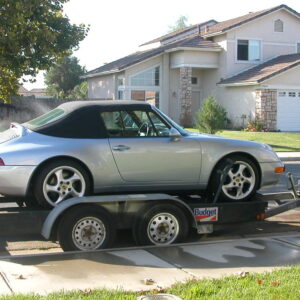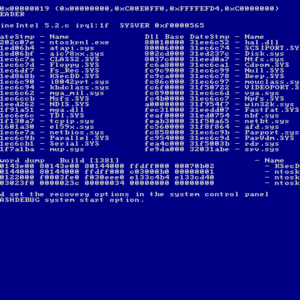
CAREERS WITH PENSIONS
Your career choice may prevent early retirement. Careers are totally different in today’s world compared to my grandparents or even my parents era. Most grandparents talk about having a pension and even my parents both had a pension. Those good old days have nearly but all vanished. If you are lucky enough to have a pension, I salute you. But a pension may come with some negatives too. Things like working past an age that you would like to really retire. Simply just because you’ve been working at a company for 20 years does not guarantee that you will get a pension. Some require that you work until you’re 55 regardless. Frankly, that is just a bit longer than I want to work. There may be another negative and that is that you may be forced to stay in the same state for your whole career. Sure, having a solid pension fund your retirement would be great, but I’m just not willing to work until I’m 55.CAREERS WITH NO PENSION
For those of us that don’t work for a company that offers a pension, what does our career path look like? It probably involves moving around from company to company several times in our career. We probably fund 401k’s, IRA’s, and Roth IRA’s while we are at each company. When we leave, we roll-over those funds into an IRA for example. Basically, we are responsible for saving for our retirement with bi-weekly contributions and company matches. For me, this is the path that I have been on. Both having a pension and not having a pension will ultimately have the same end result, but in much different ways. As I said before, there are pros and cons for each in my opinion. Most of us don’t pick our career paths based on any of these choices. In fact, some folks may be inadvertently locked into a company not even knowing it. For example, if you do 10 years in the military, you may think to yourself, what is another 10 years? You do 20 years in the military you will get a pension. In fact, it’s one of the only careers you can work for 20 years and get a pension regardless of age. Join at 18, retire at 38. What about a job where you have a pension, but the job only exists in one state or one city in one state? Are you stuck? Yes.THE MAJORITY OF US
The majority of us will fall into the NO pension category. We will have to be diligent our whole lives to save for our retirement. Let’s face it, we can’t assume that social security will even be around by the time they allow us to collect it. They keep raising the age too. By the time I am old enough to collect it, the age will likely be above 70 years old. Besides, who wants to retire at 70 years old, or heck, 67 or 65 anyway! I want to retire in my forties or as early as possible. So, I’m responsible for my own retirement. If social security is still around, then I’ll use that strictly for medical bills. Every job I’ve had, I’ve at least contributed the minimum into my 401k to receive the company match. I’ve worked for some great companies over the years. Some with very liberal matching contributions. However, in my early 20’s, I didn’t care much about saving for retirement. I cared about having fun and was living paycheck to paycheck. Like most people I assume. That said, I did manage to save a little here and there over the years. I rolled that money over to an IRA eventually when I left various companies. I recommend this simply because you have more control over what and how things are invested. I’ll go more into this in later posts.TURNING THINGS AROUND
Eventually, I had saved roughly about 40k in retirement in my early 30’s. That is not impressive at all. In fact, its dismal to say the least. But things started to change when I started to take control of my spending. In addition, I also started looking more at reducing debit, saving, and really focusing on investing. I had 3 cars, and 2 car payments. I had a mortgage and about 8k in credit card debit. Lastly, I also had about 25k in student loans. This was 2006. In future posts, I’ll go over my complete career and salaries to give you an idea of how I progressed, but for now, I was making roughly 66K/year. It wasn’t until 2007 when I switched jobs and started making 78K that I started to change things. I slowly reduced the credit card bills, kept paying on my student loans and cars. It wasn’t until 2008 when I finally finished paying off my credit card bills. I got a raise at work and decided to continue my education so I enrolled into masters program. My company ended up paying about 98% of my masters degree. The only reason they didn’t pay 100% was because I ended up quitting that job.DRASTIC CHANGES
In 2009-2010 I sold all 3 cars and bought one new used car for 20K. I also got a new job which required me to move across the country. I put my house up for rent (2010 was terrible for sellers) and moved back east for a new job. They were paying me $135K to start. They had an excellent 401k match to boot. I managed to save a lot of money while I had a good friend as a roommate and also continued to learn more and more about the stock market. Investing was new to me but I honestly didn’t know much about what I was doing at the time. I was also losing money each month on my house turned rental property. However, at tax time, this was pretty much as wash. Eventually I switched jobs again after only surviving 6 months at my new job. It was stressful, and was not challenging at all. I dreading going to work each morning. But I got an offer I couldn’t refuse, I went to work for a company that I had been wanting to work at for nearly 10 years. Starting salary, 155K. Things started to change for the better in 2011. Then I had another “what was I thinking” moment! Cheers, HFThe following two tabs change content below.


HF
Save, Invest, Let Time Do The Rest.
Latest posts by HF (see all)
- Thetagang Options Week of 06-14-21 - June 20, 2021
- Thetagang Options Recap Week of 06-07-21 - June 13, 2021
- Thetagang Options Recap Week of 06-01-21 - June 6, 2021



